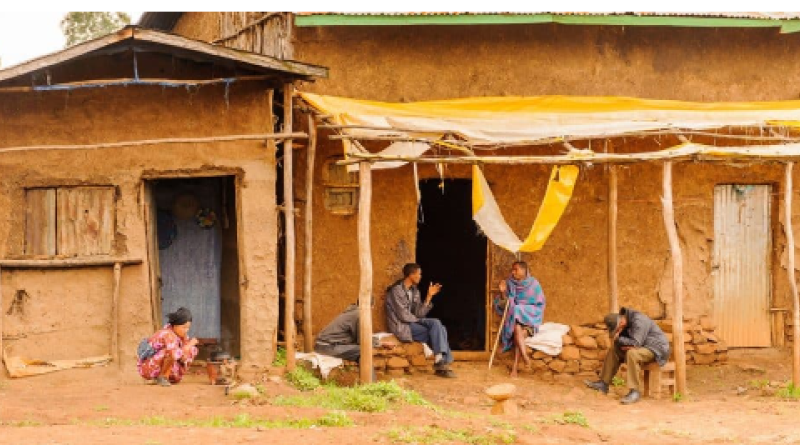ZIMBABWE: the government declares a state of national disaster in the face of drought

Zimbabwe declared a state of national disaster on Wednesday 3 April 2024 due to the devastating drought that has hit large parts of southern Africa. President Emmerson Mnangagwa issued an urgent appeal for humanitarian aid, pointing out that more than 80% of the country is experiencing below-normal rainfall, leaving millions in need of food assistance.
Zimbabwe joins its neighbours Zambia and Malawi in facing unprecedented drought due to the El Niño weather phenomenon. This situation is jeopardising the food security of millions of people, with disastrous consequences for farmers and rural populations. The southern African country declared a state of national disaster on Wednesday in response to the severe drought affecting large parts of southern Africa. The declaration comes after similar measures were taken by neighbouring Zambia and Malawi, highlighting the scale of the humanitarian crisis in the region.
The President of Zimbabwe, Emmerson Mnangagwa, has launched an urgent appeal for international aid, pointing out that more than 80% of the country is experiencing below-normal rainfall due to drought linked to the El Niño weather phenomenon. This situation has devastated crops and left millions of people in need of food assistance. “Due to the drought caused by El Niño, more than 80% of our country has received below normal rainfall”, explained President Mnangagwa, before adding that “the country’s top priority is to guarantee food for all Zimbabweans. No Zimbabwean should succumb or die of hunger”.
Nearly 20% of the country’s population affected by famine
According to the authorities, 2.7 million people, or almost 20% of the country’s population, are expected to go without food this year in Zimbabwe. The first few months of the year are traditionally known as the “lean season”, when households run out of food while waiting for the new harvest. However, with the continuing drought, there is little hope of replenishing food stocks this year.
The United Nations World Food Programme (WFP) has already set up a food aid programme for almost 2.7 million people for the period from January to March. However, President Mnangagwa has warned that even more people are likely to need food aid in the coming months.
Zimbabwe, once a grain exporter and regional breadbasket, has turned to aid agencies in recent years to stave off mass starvation due to extreme weather conditions such as heatwaves and floods. The declaration of a state of national disaster by President Mnangagwa will enable humanitarian organisations to mobilise additional international support to meet the urgent needs of the population.
The current food crisis in southern Africa is the result of a persistent drought exacerbated by El Niño, a natural climatic phenomenon that warms parts of the Pacific Ocean every two to seven years and has varying effects on the global climate. In southern Africa, it generally causes below-average rainfall, but this year’s drought was the worst in decades.
Cover photo: By AFRIK21


